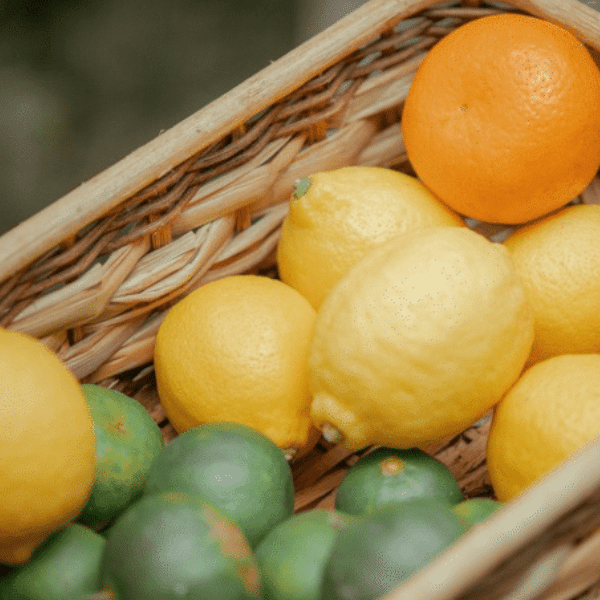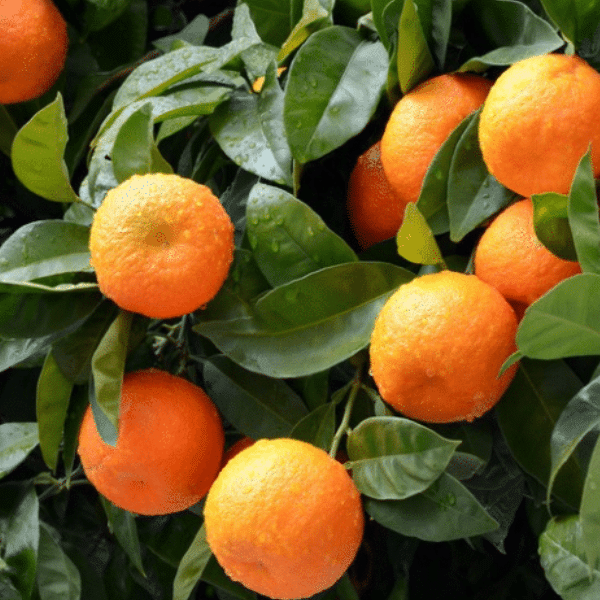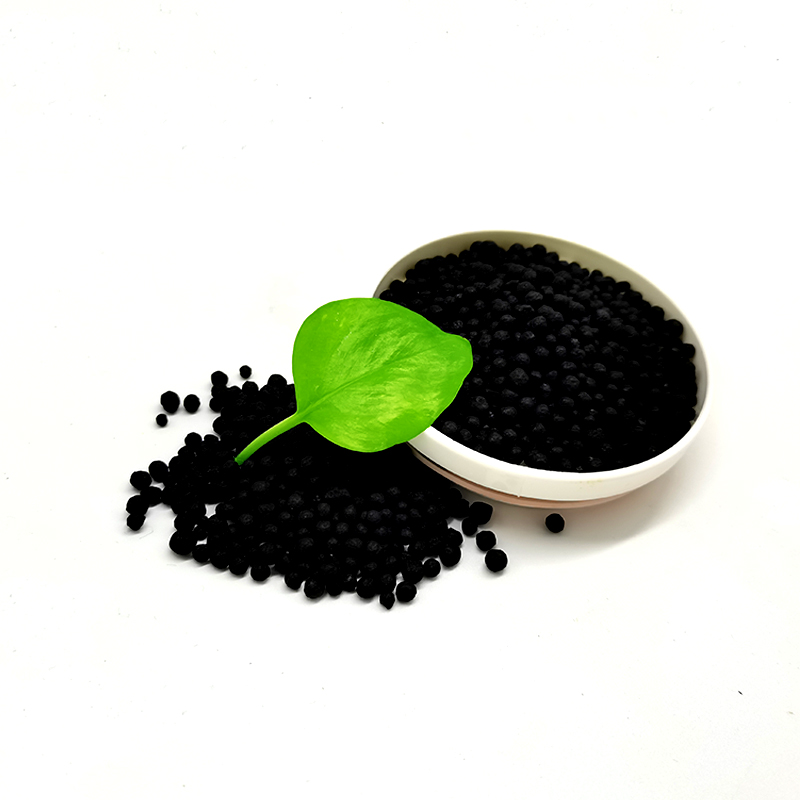Introduction to Organic Liquid Citrus Fertilizers
Citrus farming can be one of the most gratifying and yet demanding tasks. Organic liquid citrus fertilizer is a crucial part of meeting the specific needs of growing citruses. So, what exactly is it? It simply refers to a fluid solution prepared from natural components such as fish emulsion, seaweed extracts and other decomposed plant materials that contain all necessary elements for good growth of citrus plants. In contrast to synthetic feeds, these organic solutions are derived naturally and have no chemical additions thereby making them safe choices for environmental conservation and produce.
There is a huge need for use of organic based products in the cultivation of citrus fruits. These fertilizers do not just provide essential nutrients in an easy way to be absorbed but also enhance soil structure, water holding capacity and promote beneficial microbial communities etc. This extends further than feeding; rather they contribute towards sustainable agriculture by reducing reliance on chemicals hence low environmental effects.
Dr. Elaine Ingham says, “…The right organic fertilizers can boost plant health naturally and help build fertile life-rich soil; you’re not just feeding the plants, you are also feeding the soil…” With this approach therefore one will ensure that their trees grow well with quality fruits that every farmer would wish for in his or her farm.
Ingredients in Liquid Fertilizers for Organic Citrus Growing
The most important feature of organic liquid citrus fertilizer is the nutrient content, which is crucial for citrus plants’ health and yield. Nitrogen (N), phosphorus (P), and potassium (K) are some of the main ingredients that are usually mixed in the making of NPK. Each nutrient performs an important function in plant health:
- Nitrogen is essential for leaf and stem growth; it stimulates vigorous growth and gives a deep green color to citrus leaves.
- Phosphorous assists with root and flower development, enabling plants to secure nutrients better.
- Potassium is good for the overall well-being of the plant by facilitating osmosis, enzyme activation processes as well as synthesis of proteins and starches.
Apart from these primary nutrients, organic liquid citrus fertilizers often contain such micro-elements as calcium, magnesium, iron, etc., which help prevent certain diseases that may occur because of a lack of nutrition. For instance, calcium enables firm cell walls in plants, while magnesium is a constituent element found in chlorophylls; at last but not least, iron helps make chlorophyll what it actually is – a pigment involved in photosynthesis.
According to Dr. H.B. Tukey, who specializes in horticultural sciences, “Even minute quantities can have significant impact on tree health or fruit production.” This underscores the significance of a complete micronutrient profile such as those provided by organic fertilizers.
These elements serve not only physiological functions but they also improve disease resistance as well as insect tolerance, which result in better orchard healthiness through higher yields. Consequently, gardeners or farmers should select an ecological liquid blend for their lemon trees that consists essentially of all parts mentioned above so that each one grows sufficiently nourished.

How to Select the Right Organic Liquid Citrus Fertilizer
When you are selecting an organic liquid citrus fertilizer for your citrus trees, it is not just about choosing a popular brand. It also requires understanding the unique requirements of your citrus varieties and the type of soil you have. When choosing a fertilizer, there are some important factors you need to consider:
- NPK Ratio: Nitrogen (N), phosphorus (P), and potassium (K) ratios in fertilizers are very important. A balanced NPK ratio is needed by citrus trees for all parts of their growth from root development to fruit production. The perfect ratio may vary depending on soil composition and the tree’s growth stage.
- Ingredient Source: One should ensure that organic fertilizers’ ingredients come from respectable sources. These components like seaweeds, fish emulsions, and decomposed plants not only give rich nutrients but also build sustainable agriculture.
According to expert agricultural scientist Dr. Lucy Greene, “The choice of fertilizer should match the specific nutritional deficiencies of your soil. This can be done through carrying out a soil test which can assist in providing an effective method for adjusting a flourishing strategy.” This highlights the significance of a personalized approach hinged on thorough soil analysis.
Some products that perform well with different kinds of citrus trees include:
- Seagrow Organic Liquid Fertilizer: Noted for its balanced NPK and high micronutrient content; this product is very good when it comes to leaf growth promotion as well as general health enhancement.
- Fish-n-Gro Fertilizer: For flowering improvement and root development, this alternative contains enough phosphorus necessary for young or transplanted trees with strong root system desires.
- EcoThrive Citrus Blend: This manure, made specifically for citruses, helps improve both robust fruiting as well as microbial activity in soils, thereby improving overall health over time.
By gardeners/farmers selecting products that suit their citrus plant’s needs well, they can ensure that the trees grow optimally and are more productive, leading to healthier plants with higher citrus fruit yields.
Maximize the Effect of Your Application Through These Application Tips
It is crucial to apply organic liquid citrus fertilizer appropriately as selecting the right formula. Below are some of the best practices that can be used in applying liquid fertilizer to guarantee thriving citrus trees:
- Timing: When to apply fertilizers has a significant impact on nutrient uptake. For citrus trees, the recommended time for administering fertilizer is during growing seasons, which include spring and summer because at this time they have better chances to make use of nutrients.
- Frequency: Do not over-fertilize citrus trees because it may result in nutrient burn and other issues with growth. In general, once every 4-6 weeks during their active growth season is ideal for applying liquid fertilizer to a citrus tree. During winter months when they are dormant, decrease the frequency so that useful nutrients do not go to waste.
- Method of Application: The organic liquid fertilizer should be put into the soil around the base of a tree without getting close to leaves or stems so as not to cause blight. You can use a hose-end sprayer or watering can for spreading out this manure equally over a large compound. The soil must be damp before using it since it makes absorption easier while keeping roots away from being burnt.
- Soil pH Consideration: Citrus trees thrive well in slightly acidic soils with pHs between 6.0 and 7.0 approximately on average. Check soil pH before applying fertilizers; if need be, change it accordingly. A proper level of pH ensures much availability of nutrients, especially microelements such as iron and manganese among others.
“Always water the tree deeply a day before applying liquid fertilizer,” says Dr. Emily Castor, who is an expert in plant nutrition. This prior watering assists in improved absorption by soil, thereby ensuring that all nutrients are taken up effectively, thus reducing chances of nutrient runoff.
These application tips will greatly improve your fruit quality, yield, and healthiness of your plants. By making sure that you apply the fertilizer in the manner that is best for your trees, you will be able to attain optimum citrus production and have a lot of fruits.

Success Stories with Organic Liquid Citrus Fertilizers
Effects of organic liquid citrus fertilizer on citrus growth are tremendous. The following examples show how some gardeners and farmers improved their crops:
Florida Citrus Orchard Case Study: A family-owned Central Florida citrus orchard struggled with reduced yields due to soil degradation and pest attack. However, after adopting an organic liquid fertilizer that lays emphasis on the NPK ratio and essential micro-nutrients, they experienced a great improvement. Within just two growing seasons, their orange production increased by 20% while fruit quality rose in terms of high juice content and taste enhancement. John Sanders, who owns the orchard, says that “By switching to organic fertilizers we not only helped our trees but also improved the soil health making it more resilient against pests.”
California Lemon Grove Success: In Southern California, a small lemon grove faced problems of poor fruit set and leaf chlorosis; Maria Gonzalez, the grower, knew she had to deal with micronutrient deficiencies. She used an iron-rich seaweed-based liquid organic fertilizer which contained magnesium. A few months later her leaves turned greener and lemons yield shot up by 30%. She adds that “The shift to organics took more attention, hard work as well as patience but was worth it in terms of fruit quality besides environmental impact.”
Texas Grapefruit Improvement: Fruit sizing challenges coupled with tree vigor characterized grapefruit cultivation in Texas for one farmer. But there were noticeable improvements not just in size but also sweetness as well as skin texture of grapefruits after applying fish emulsion and compost tea during their fertilization process. Tom Liu states that “Organic fertilizers provided a slower nutrient release which is better for our grapefruits.”
These case studies indicate potential benefits from using organic liquid citrus fertilizers like enhanced fruit production & quality, healthy soils & sustainability. These success stories are powerful testimonials encouraging those considering shifting to organic fertilization methods, be they gardeners or farmers.
Possible Difficulties and Their Solutions
Although organic liquid citrus fertilizers are advantageous, they also pose some challenges. The comprehension of these hurdles and how to address them can result in more efficient usage and improved outcomes for the growth of citrus:
Nutrient Availability: The gradual supply of nutrients that comes with organic fertilizers is one major problem as it may not satisfy the immediate demands of rapidly growing citrus trees. This may result in transient nutrient deficiencies, mainly in well-drained soils.
Solution: In this case, additional fast-releasing organic fertilizers need to be supplemented at times when growth peaks. Soil fertility can also be enhanced by including compost or humus.
Consistency in Nutrient Composition: Different from artificial ones, the composition of minerals varies greatly among different terrestrial sources, thereby making it harder to provide regular mineral nutrition.
Solution: To take care of this, use a combination of various organic fertilizers to ensure a balanced nutrient profile. It is important that soil samples should be collected for regular testing so as to monitor its fertility status and adjust fertilizer application accordingly.
Pest and Disease Management: Soil health gets enhanced by the application of organic manures but still, there could be pest and diseases incidences which can negatively influence citrus production.
Solution: Integrated pest management (IPM) systems should then be used which include cultural practices like proper sanitation, biological control methods as well as the use of some plant-derived pesticides.
Costs And Accessibility: Organic manure can cost more than synthetic ones while at the same time it may not be found easily, hence discouraging the farmers away from using them.
Solution: Identify local resources available for on-site composting or production of fertilizer. Another strategy would involve joining hands with other farmers’ groups within the locality that will enable them to purchase inputs collectively thus reducing costs.
Dr. Anita Desai, who is a skilled proponent for organic agriculture, claims, “Addressing challenges in organic citrus growing with innovative and integrated strategies not only enhances the effectiveness of organic fertilizers but also supports sustainable agricultural practices.”
By understanding and managing these challenges, growers can maximize the benefits of organic liquid citrus fertilizers and ensure a successful and sustainable citrus growing operation.
Conclusion
The shift towards organic liquid citrus fertilizers is a sustainable approach to agriculture that enhances the growth and health of citrus trees while at the same time conserving environment. Integration of organic methods in citrus farming has shown substantial improvement in fruit quality, yield, and overall tree health.
Further, environmental impact and sustainability considerations are crucial in the context of citrus farming. Farmers opting for organic fertilizers thus reduce dependence on chemical inputs, minimize soil and water pollution as well promote biodiversity within their orchards. This comprehensive approach guarantees high-quality fruits and sustains ecosystem’s integrity.
When it comes to sustainable farming practices globally, organic liquid citrus fertilizers are at the forefront. It is a choice that aligns with the principles of environmental stewardship and responsible farming; hence it ensures that generations will still have plenty and nutritious oranges.
To sum up, being embraced as more than just a mere farming practice proves the case for adopting organic liquid citrus fertilizers through which farmers can commit themselves towards nurturing lands as well as having healthier environments. By this token, growers who are open to these practices show their willingness to invest in future agriculture as they support better for all through resilience and adaptability alike.
Here are a couple of resources where you can start your search:
- PubMed – This is a free resource that provides access to the MEDLINE database of citations and abstracts for biomedical literature. Here you can find various studies and articles related to organic fertilizers and their effects on citrus growth.
- NCBI – National Center for Biotechnology Information advances science and health by providing access to biomedical and genomic information. It might offer specific research papers discussing the components and benefits of organic liquid fertilizers used in agriculture, including citrus farming.







